ADA Overview
Introduction
The Americans with Disabilities Act is our country’s comprehensive civil rights legislation that prohibits discrimination and guarantees that people with disabilities have the same opportunities as others to participate in the mainstream of American life -- to enjoy employment opportunities, to purchase goods and services, and to benefit from state and local government services, programs and activities.
The ADA has five titles:
Title I - Employment

Title I requires employers with 15 or more employees to provide qualified individuals with disabilities an equal opportunity to benefit from the full range of employment-related opportunities available to others. For example, it prohibits discrimination in recruitment, hiring, promotions, training, pay, social activities, and other privileges of employment. It restricts questions that can be asked about an applicant's disability before a job offer is made, and it requires that employers make reasonable accommodation to the known physical or mental limitations of qualified individuals with disabilities, unless the accommodation would result in undue hardship.
Title II - Public Entities
Subtitle A: State and Local Government Activities
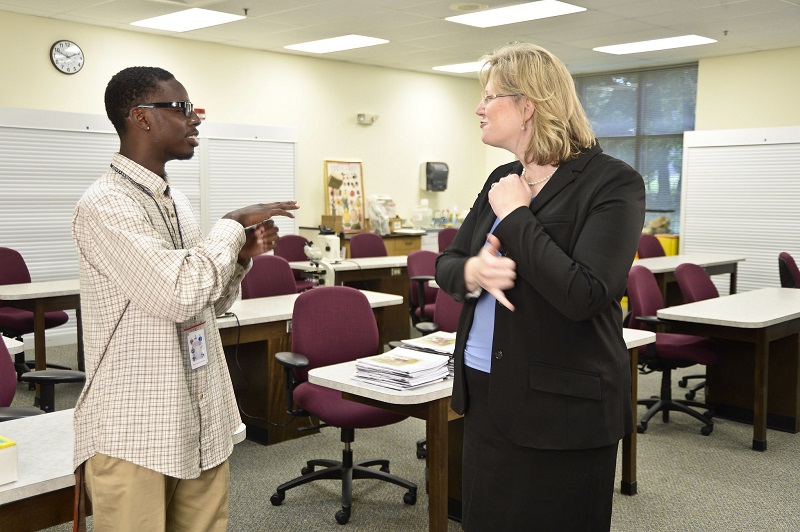
Title II requires that state and local governments give people with disabilities an equal opportunity to benefit from their programs, services, and activities, for example public education, employment, transportation, recreation, health care, social services, courts, voting, and town meetings.
State and local governments are required to follow specific architectural standards in the new construction and alteration of their buildings. They also must relocate programs or otherwise provide access in inaccessible older buildings, and communicate effectively with people who have hearing, vision, or speech disabilities. Public entities are not required to take actions that would result in undue financial and administrative burdens. They are required to make reasonable modifications to policies, practices, and procedures where necessary to avoid discrimination, unless they can demonstrate that doing so would fundamentally alter the nature of the service, program, or activity being provided.
Subtitle B: Public Transportation
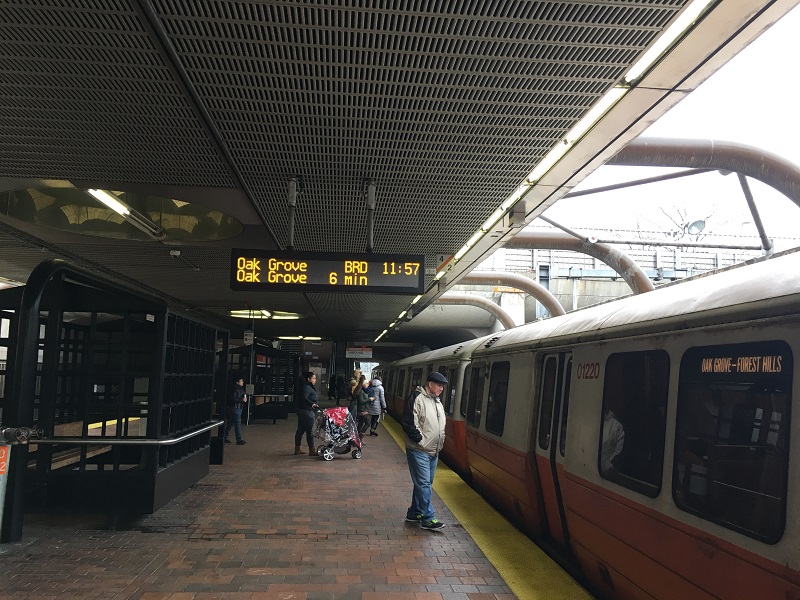
The transportation provisions of title II cover public transportation services, such as city buses and public rail transit (e.g. subways, commuter rails, Amtrak). Public transportation authorities must comply with requirements for accessibility in newly purchased vehicles, make good faith efforts to purchase or lease accessible used buses, remanufacture buses in an accessible manner, and, provide paratransit where they operate fixed-route bus or rail systems. Paratransit is a service where individuals with disabilities who are unable to use the regular transit system independently are picked up and dropped off at their destinations.
Title III - Private Entities
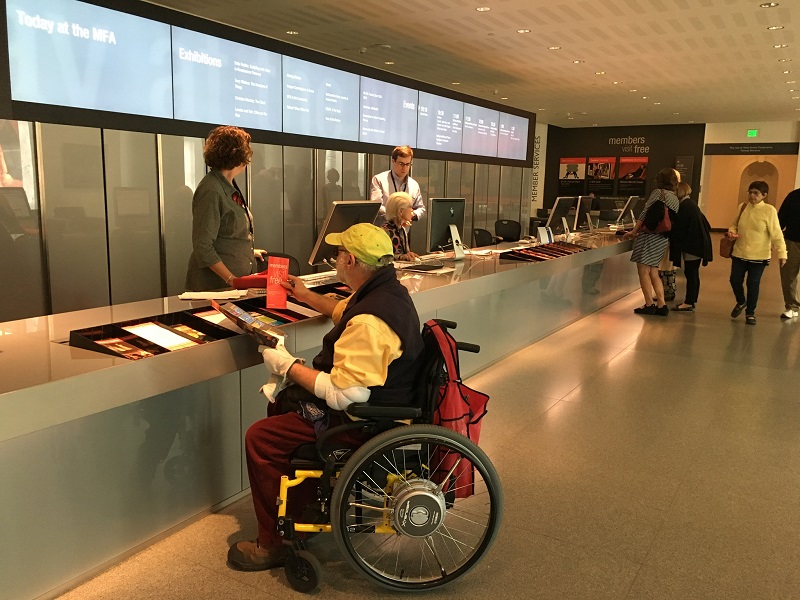
Public accommodations are private entities that own, lease, lease to, or operate facilities such as restaurants, stores, hotels, theaters, private schools, doctors' offices, day care centers, and recreation facilities including sports stadiums and fitness clubs.
Public accommodations must comply with basic nondiscrimination requirements that prohibit exclusion, segregation, and unequal treatment. They also must comply with architectural accessibility standards for new and altered buildings; reasonable modifications to policies, practices, and procedures; and effective communication with people with hearing, vision, or speech disabilities. Additionally, public accommodations must remove barriers in existing buildings where it is easy to do so without much difficulty or expense.
Courses and examinations related to professional, educational, or trade-related applications, licensing, certifications, or credentialing must be provided in a place and manner accessible to people with disabilities, or alternative accessible arrangements must be offered.
Commercial facilities, such as factories and warehouses, must comply with the ADA Standards for Accessible Design.
Transportation services provided by private entities are also covered by Title III. This includes over-the-road buses, hotel airport shuttle services, taxi services, van companies, charter buses and private school transportation.
Title IV - Telecommunications
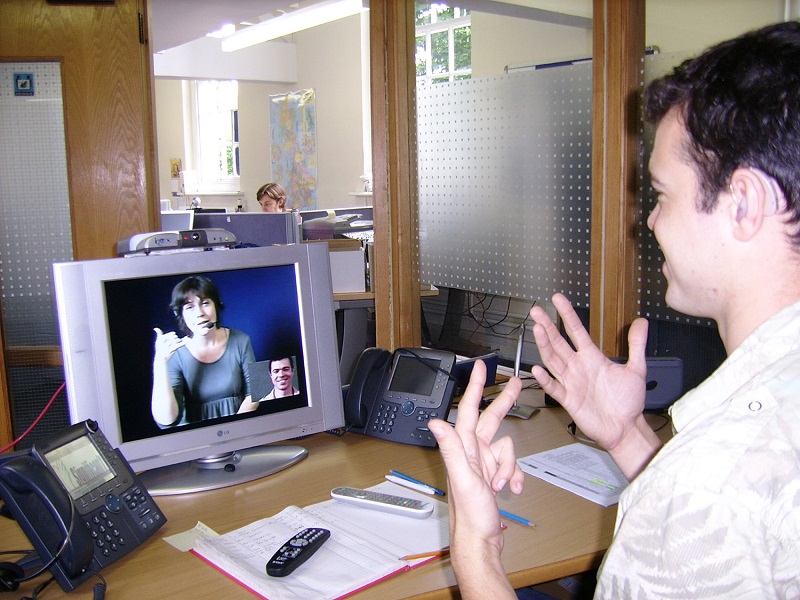
Title IV addresses telephone and television access for people with hearing and speech disabilities. It requires common carriers (telephone companies) to establish interstate and intrastate telecommunications relay services (TRS) 24 hours a day, 7 days a week. TRS enables callers with hearing and speech disabilities who use TTYs and callers who use voice telephones to communicate with each other through a third party communications assistant. Many telephone companies also provide relay services for people who prefer using sign language by video. Title IV also requires closed captioning of federally funded public service announcements.
Title V - Miscellaneous
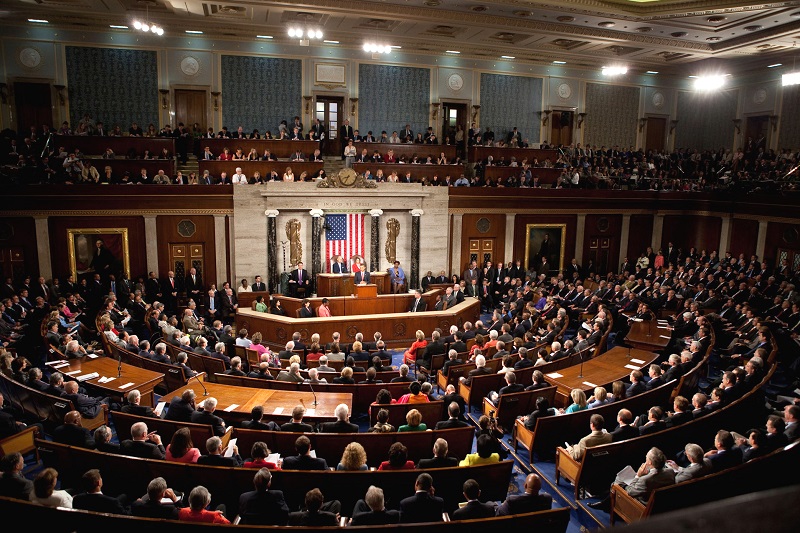
Title V includes miscellaneous provisions that are intended to apply broadly across all the other titles. Some of the significant provisions include:
- Extension of coverage to the U.S. Congress.
- Exclusion of certain conditions, regardless of whether they are impairments, from the definition of disability including transvestism, transsexualism, pedophilia, exhibitionism, voyeurism, gender identity disorders not resulting from physical impairments, other sexual behavior disorders, compulsive gambling, kleptomania, pyromania, and psychoactive substance use disorders resulting from current illegal use of drugs
- Retaliation, intimidation, coercion, threats, or interference with people who seek to exercise their rights or who encourage or aid others to do so, is prohibited.



